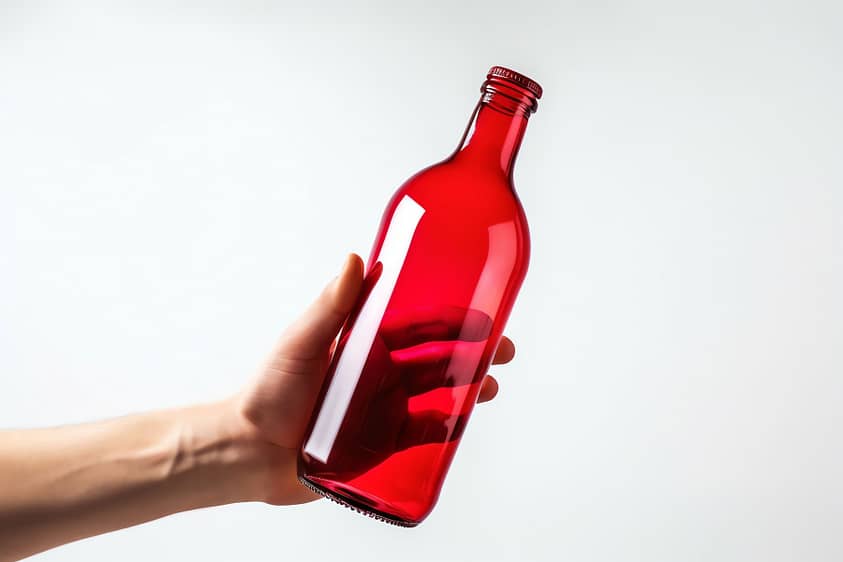Though they begin to look like adults on the outside, teens are still developing on the inside. A person’s brain develops well into their 20s, which is one reason to worry about the alcohol effect on teenage brains. Call Foothills at Red Oak Recovery® at 866.300.5275 for information about our adolescent alcohol addiction treatment program. Are you worried about the effects of teenage drinking on the brain? We can help your teen achieve the life you deserve.
Alcohol’s Effect on Teenage Brain
The teenage brain is still developing, and alcohol can have a negative effect on it. Alcohol affects how the brain works in many ways. It can:
- Alter the way nerve cells communicate
- Reduce alertness and attention
- Impair memory and decision-making skills
- Increase impulsiveness
- Lead to cognitive impairments in the short-term and long-term
- Impact the development of a person’s personality and social behavior
- Increase the risk of developing mental health issues such as depression and anxiety
Alcohol abuse during adolescence can also lead to an increased risk of substance abuse in the future.
The Effects of Alcohol Last into Adulthood
Excessive drinking can become problematic for anyone of any age, but the brain’s plasticity makes the alcohol effect on teenage brain structures particularly dangerous.
Alcohol negatively affects the central nervous system. It causes the brain to slow its cognitive functions and makes it harder to process information. An adolescent’s brain is still developing, so the effects on their cerebral cortex are even more dramatic than they are in an adult brain.
Alcohol also affects the brain’s frontal lobes, which are largely responsible for decision-making ability. This is also the area of the brain that oversees emotional control.
Being unable to control emotions and having your ability to make good decisions impaired can lead to risky, impulsive actions that put teens in danger.
Other Risks to the Brain
- Damage to the cerebellum, the part of the brain responsible for balance and coordination, can lead to significant difficulties in movement, making everyday activities challenging.
- The medulla, which controls vital functions like breathing and heart rate, when depressed by alcohol consumption, can result in fatal outcomes due to respiratory depression.
- The hippocampus, a critical area for memory formation, can be adversely affected by alcohol, leading to short-term memory loss and, over time, impacting long-term memory as well.
- Psychological disturbances are common effects of alcohol on the brain, including increased anxiety, deepening depression, and persistent insomnia, which can significantly deteriorate one’s quality of life.
- Dementia, a severe and often debilitating condition, can be accelerated by the chronic use of alcohol, leading to a decline in cognitive function, social skills, and the ability to perform daily tasks.
The impact of alcohol on the brain extends beyond mere temporary inconveniences; it can lead to permanent and irreversible brain damage, especially with prolonged and heavy use. These alterations in brain function and structure can profoundly affect an individual’s life, highlighting the importance of moderation and awareness of the risks associated with alcohol consumption.
Alcohol and Teen Brain Plasticity
Neuroplasticity refers to the brain’s ability to rewire itself as it learns more information. Without plasticity, adults would retain only the same amount of knowledge they had when they were born.
During adolescence, the brain is extremely busy processing new experiences. The prefrontal cortex is especially productive at this time, and it is one of the last parts of the brain to reach maturity.
Thanks to plasticity, the brain is constantly trying to adapt to new stimuli. To the brain, alcohol and other substances are nothing more than new information that needs to be understood so the brain can adapt to their presence.
Alcohol triggers the brain’s reward center and causes a release of dopamine, which reinforces the person’s belief that using alcohol is a positive behavior. A teenager’s own brain essentially encourages them to drink alcohol again. This can lead to dangerous levels of alcohol use and the development of an alcohol use disorder.
Possible Long-Term Effects of Alcohol
Younger individuals are at a heightened risk of facing long-term cognitive issues, including challenges with impulse control, memory loss, and maintaining balance, as a direct consequence of alcohol misuse. The correlation between the early initiation of alcohol use and the increased risk of developing addiction and incurring permanent brain damage is alarming.
Detailed research has illuminated that nearly 50% of individuals who commence drinking alcohol before the tender age of 14 find themselves grappling with an alcohol use disorder later in life. This statistic starkly highlights the critical nature of addressing alcohol consumption among young people. Thankfully, despite the grim outlook for early alcohol users, there is a silver lining.
Specialized treatment programs targeting teen alcohol abuse have shown to be not only accessible but also profoundly effective in combating this issue. These programs are designed to offer comprehensive support and rehabilitation, focusing on the unique needs of younger individuals to pave the way for recovery and a healthier future.
Teen Alcohol Abuse Treatment at Foothills at Foothills at Red Oak Recovery®
Foothills at Red Oak Recovery® provides a safe, welcoming environment for adolescent and teen boys to heal from substance and alcohol use disorders, process disorders, co-occurring mental health concerns, and more. If a teenager needs the support of a treatment program, call Foothills at Red Oak Recovery® today at 866.300.5275 or use our convenient online form to learn more about teen alcohol abuse treatment.





